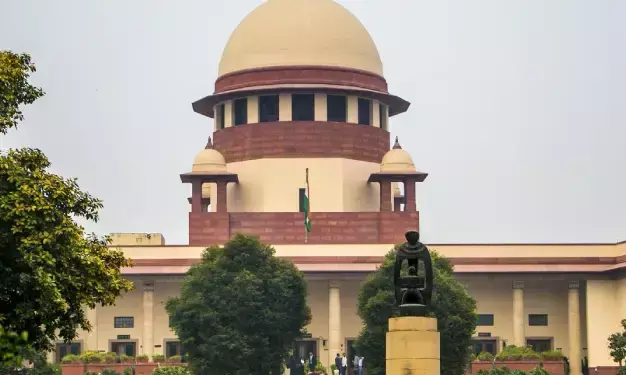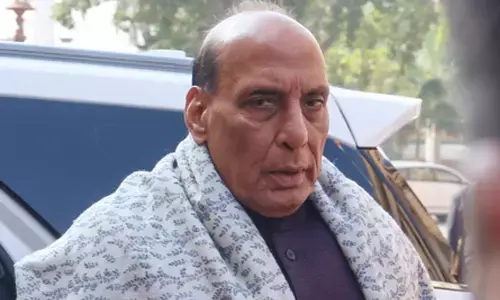What Role Does Insurance Play in Personal Finance?

When we think about personal finance, many of us immediately picture savings accounts, investment portfolios, and retirement plans.
When we think about personal finance, many of us immediately picture savings accounts, investment portfolios, and retirement plans. But how often do we stop and think about insurance? Insurance is more than just a product or policy—it’s a cornerstone of financial security and an essential part of managing life’s uncertainties. Life, as we all know, is unpredictable. One moment everything is going smoothly, and the next, an unexpected event can throw things off balance. This is where insurance comes in—it acts as a financial shield, protecting you and your loved ones from unexpected expenses.
When you talk to people about personal finance, they often emphasise that insurance isn’t just about managing risks—it’s also a key part of long-term financial planning. Certain life insurance policies, like ULIPs or endowment plans, do more than provide coverage; they also help you save for future milestones, like your child’s education or your retirement. When life throws curveballs, the financial implications can be staggering. For example, a sudden medical emergency requiring critical care can cost anywhere from ₹5 lakh to ₹15 lakh in India. Without health insurance, such an expense can wipe out years of savings in a matter of weeks. Additionally, studies show that nearly 70% of households facing uninsured health emergencies experience significant financial strain, often resulting in debt or the need to liquidate assets. The same applies to unforeseen damages to your home or car. Whether it’s your home, car, or other assets, you’ve worked hard to build and acquire them. But what happens if these are damaged or lost? That’s where asset insurance steps in.
Imagine your car is involved in an accident or your home is damaged by a natural disaster—without proper motor or property insurance, the repair or replacement costs can run into lakhs of rupees. These examples illustrate how insurance acts as a financial safety net, shielding individuals and families from the potentially devastating impact of life’s uncertainties. Motor insurance ensures you’re not financially burdened after an accident, while property insurance protects your home from natural calamities or theft. It’s about safeguarding what you’ve worked so hard to achieve. Think about health insurance: it ensures that a sudden medical emergency doesn’t drain your savings. Or life insurance, which offers your family a sense of security even in your absence. In addition, consumer goods insurance is gaining traction, given our increasing reliance on expensive gadgets and appliances. For instance, phone insurance can save you from the financial burden of replacing a damaged or lost
device, while appliance insurance covers repairs for items like refrigerators and washing machines, which are essential to daily life. These policies aren’t just financial tools; they’re lifelines in times of need.
Insurance is often misunderstood. It’s not just an expense or a box to tick off; it’s an investment in your future. It’s a way to ensure that no matter what life throws at you, your finances—and your dreams—stay on track. One of the lesser-discussed benefits of insurance is how it encourages financial discipline. Paying regular premiums, whether monthly or annually, creates a structured approach to saving. It encourages individuals to allocate a portion of their income toward future security rather than immediate consumption. For example, purchasing a term insurance policy in your 20s or 30s often means premiums as low as ₹500 per month. Over time, this small, manageable expense provides significant financial protection—often worth ₹1 crore or more. Starting early not only ensures lower premiums but also allows you to build a habit of consistent savings, which can translate into more disciplined financial planning overall. Another misconception is that insurance is too expensive. But when you consider the cost of premiums compared to the financial burden of an uninsured event, the value becomes clear. For example, a ₹5,000 annual health insurance premium can save you from a ₹10 lakh hospital bill, making it an affordable and invaluable investment.
Lastly, some people view insurance as a “set-and-forget” product. However, regular policy reviews are essential to ensure your coverage aligns with your evolving needs, whether it’s upgrading your health insurance as you age or opting for additional riders to enhance your protection. By combining life, health, and non-life insurance, you create a comprehensive safety net. This not only safeguards your current assets but also ensures financial stability for the future, enabling you to navigate life’s uncertainties with confidence. Knowing that you have a safety net in place allows you to focus on what truly matters.
If there’s one piece of advice I could give, it’s this: take the time to understand your needs, assess your risks, and choose policies that align with your goals. Insurance may not always feel urgent, but when the unexpected happens, you’ll realize just how invaluable it is.
At the end of the day, good financial planning isn’t just about growing your wealth—it’s about protecting it. And insurance is your partner in doing just that!
The author is the Group Managing Director, J B Boda Group, a pioneering force in the Indian insurance & reinsurance broking sector, and founder, RB Ventures. Since joining the company in 2011, he has established himself as a forward-thinking "Brokerpreneur," leveraging a blend of calculated risks, timely investments, and a deep commitment to service-centric brokerage. His leadership, guided by a focus on operational excellence, has driven growth and innovation across the company.
(The writer is a Group Managing Director, J B Boda Group)








